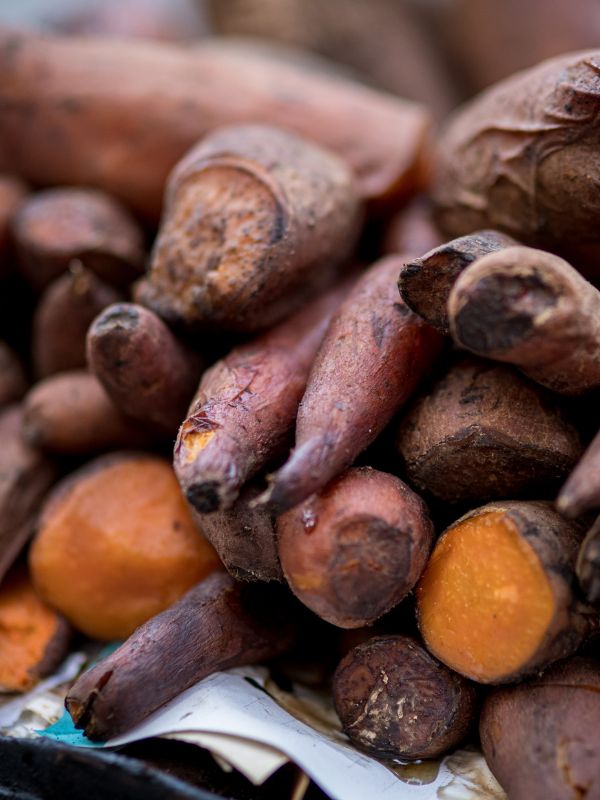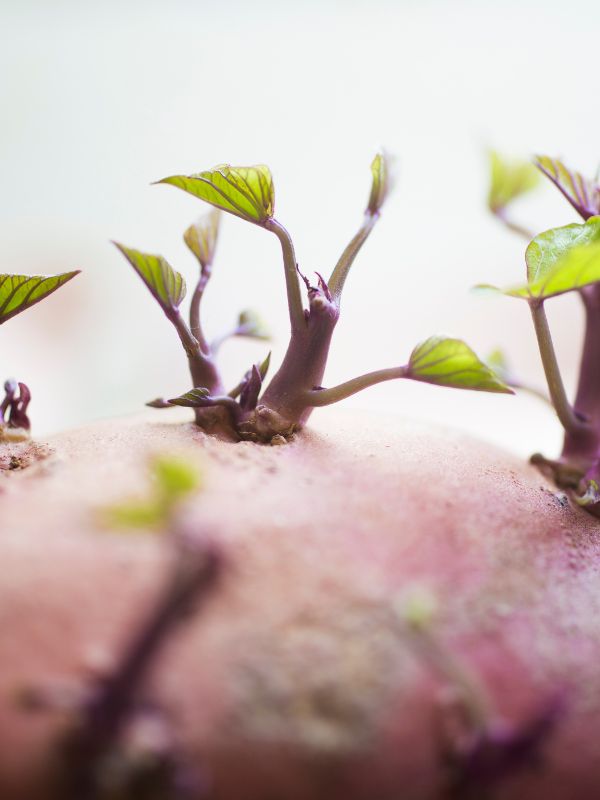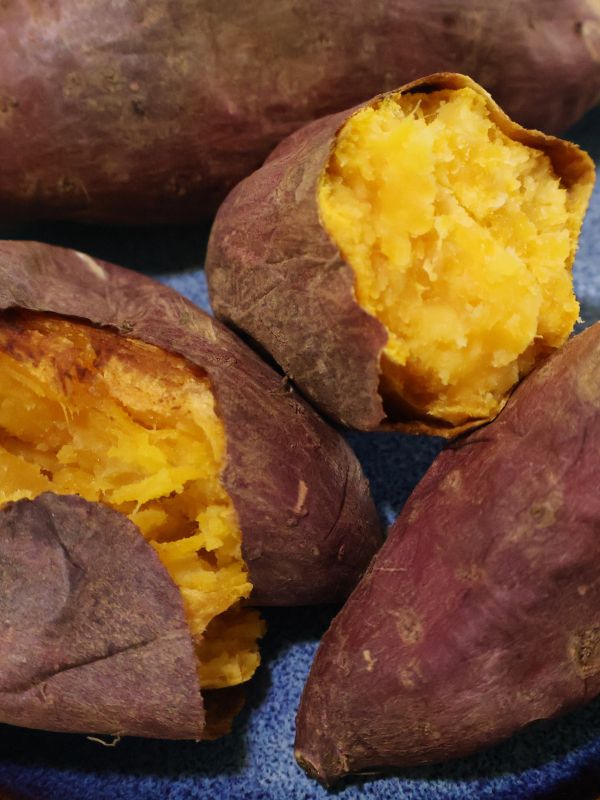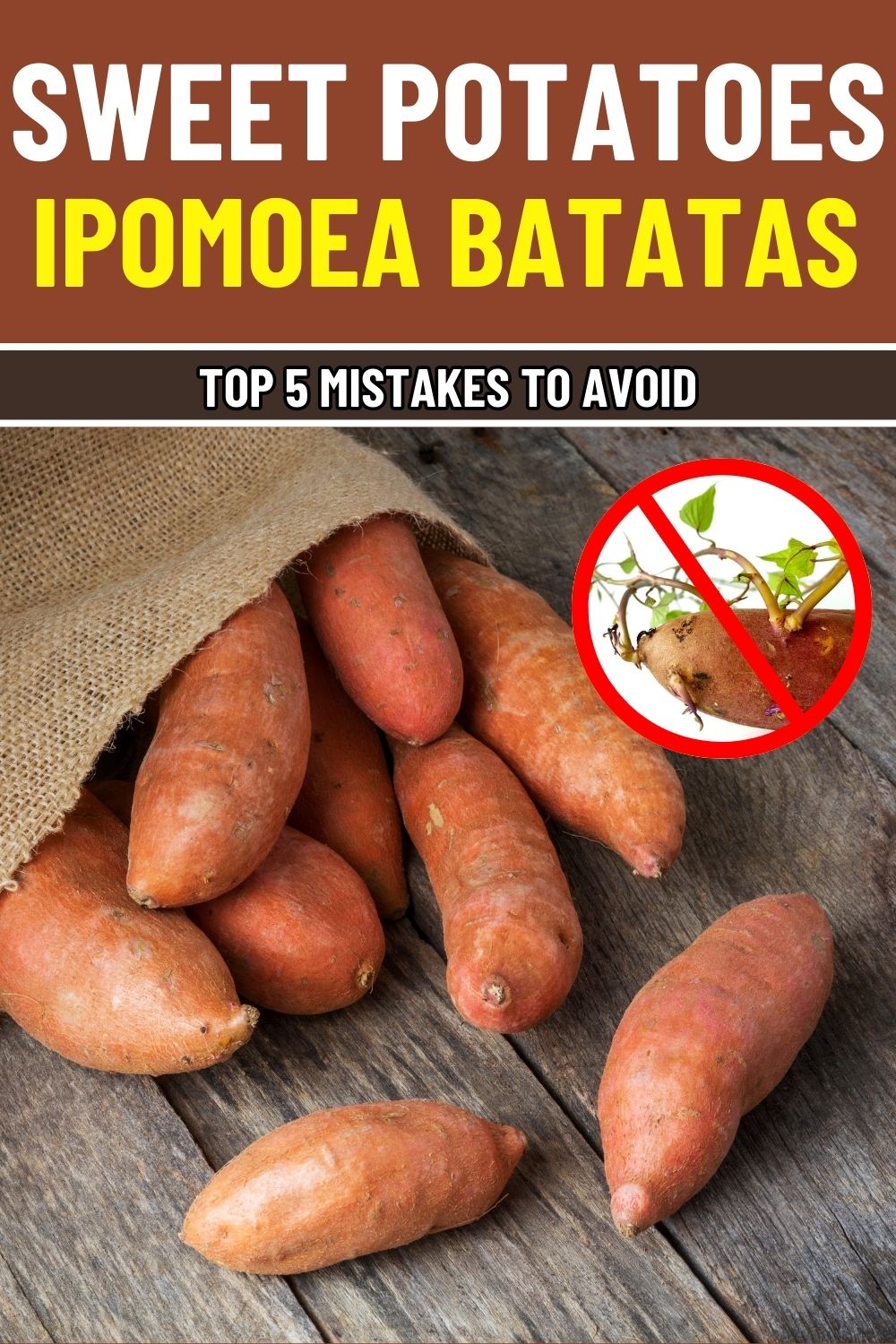Sweet potatoes (Ipomoea batatas) are a versatile and nutritious staple enjoyed worldwide.
However, improper preparation or consumption can reduce their health benefits.
Here are common mistakes people make with sweet potatoes and how to avoid them for maximum nutritional value and enjoyment.
#1. Overcooking Sweet Potatoes
Overcooking sweet potatoes can lead to the loss of essential nutrients, including vitamin C and antioxidants like beta-carotene.
Boiling them for too long or baking them at excessively high temperatures can deplete their nutrient content and compromise their natural flavor.
According to the Journal of Agricultural and Food Chemistry, steaming or roasting sweet potatoes at moderate temperatures (around 375°F or 190°C) preserves more beta-carotene and antioxidants compared to boiling.
You should aim for a tender crisp texture where the potatoes retain their structure but are still soft enough to enjoy.

#2. Peeling the Skin
Peeling off the skin of a sweet potato removes a significant amount of fiber, antioxidants, and micronutrients like potassium and manganese. The skin contains compounds like anthocyanins, which have powerful anti-inflammatory and antioxidant properties.
A study in the Journal of Food Science and Technology found that the skin of sweet potatoes contains higher concentrations of polyphenols compared to the flesh.
To reap the full nutritional benefits, consider leaving the skin on, especially when roasting or baking. If you prefer peeled sweet potatoes, remove only the tough outer layer after cooking.

#3. Overloading with Unhealthy Toppings
Sweet potatoes are naturally sweet and nutrient-rich, but excessive toppings can turn them into a calorie-heavy dish.
For instance, sugary marshmallows, processed syrups, or high-fat butter can negate the health benefits of sweet potatoes and contribute to weight gain.
Instead, enhance their natural sweetness with healthy toppings like a sprinkle of cinnamon, nutmeg, or a drizzle of raw honey. For a savory twist, Greek yogurt, avocado slices, or a pinch of chili flakes add flavor without compromising their healthiness.
A study published in Nutrients highlights how pairing sweet potatoes with healthy fats, like avocado, enhances the absorption of fat-soluble vitamins such as vitamin A.

#4. Excessive Consumption
While sweet potatoes are incredibly healthy, eating them in excessive amounts can cause digestive discomfort, such as bloating or gas, particularly for individuals sensitive to high-fiber foods.
Moreover, sweet potatoes are rich in oxalates, which in large quantities can contribute to kidney stone formation in susceptible individuals.
According to the National Kidney Foundation, moderate consumption of sweet potatoes is safe and beneficial for most people.
A serving size of about one medium sweet potato (approximately 150–200 grams) is ideal for enjoying their health benefits without adverse effects.

#5. Ignoring Food Safety
Improper storage of sweet potatoes can lead to spoilage, mold, and sprouting, which diminish their quality and safety.
Moldy sweet potatoes may harbor harmful mycotoxins that can cause health issues if ingested. Sprouted sweet potatoes can have a bitter taste and lower nutritional content.
Store sweet potatoes in a cool, dark place, ideally at temperatures between 55°F and 60°F (12°C–16°C), to extend their shelf life. Avoid refrigerating raw sweet potatoes, as cold temperatures can alter their texture and flavor.
If you notice mold, sprouting, or a foul odor, discard the sweet potatoes immediately to avoid potential health risks.

How to Use Sweet Potatoes Properly to Maximize Their Benefits
- Baking: Baking is a popular method for cooking sweet potatoes. It helps to retain their natural sweetness and nutrients.
- Roasting: Roasting can enhance the flavor and texture of sweet potatoes. Add a drizzle of olive oil, a sprinkle of salt, and your favorite herbs or spices before roasting.
- Boiling: Boiling is a simple and quick way to cook sweet potatoes. However, it can lead to some nutrient loss, so it’s best to minimize cooking time.
- Mashing: Mashed sweet potatoes can be a delicious and nutritious side dish. You can add various flavors like cinnamon, nutmeg, or maple syrup to enhance their taste.

Cautions and Precautions
Sweet potatoes contain oxalates, which can contribute to kidney stone formation in susceptible individuals. It’s important to consume them in moderation.
While sweet potatoes have a low glycemic index, they can still affect blood sugar levels. Individuals with diabetes should monitor their blood sugar levels after consuming sweet potatoes.
Some people may be allergic to sweet potatoes or other nightshade vegetables. If you experience any allergic reactions, such as skin rashes or digestive issues, discontinue consumption.
Disclaimer
This article is intended for informational purposes only and should not be considered medical advice.
Always consult with a healthcare professional before making significant dietary changes.

5 Mistakes to Avoid When Enjoying Sweet Potatoes: A Guide to Optimal Consumption
